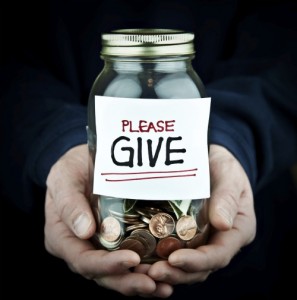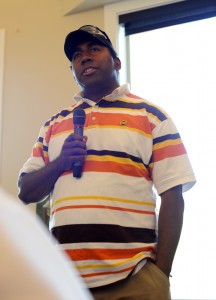May your days be bright, and the New Year bring joy to you and yours...
 Tuesday, December 21, 2010 at 12:00PM
Tuesday, December 21, 2010 at 12:00PM 
Help Bring Fresh Water to Rural Fiji. Donate Today!
On the Fiji Islands
These projects will bring potable water to, health clinics, schools and rural villages.
All donations go directly to purchase of needed project materials including water tanks, water filters, valves, pipe, etc.
Become a Monthly Supporter
Help bring fresh water to Fiji, one month at a time
![]()
Show your support with Wananavu Kadavu t-shirts & ball caps
Holladay Rotary of Utah USA
District 5420
Bruce & Carolyn Summerhays
Lynn & Ann Summerhays
Joseph & Michelle Summerhays
 Tuesday, December 21, 2010 at 12:00PM
Tuesday, December 21, 2010 at 12:00PM 
 Sunday, December 5, 2010 at 2:24PM
Sunday, December 5, 2010 at 2:24PM We at Wananavu Kadavu are proud of our Board of Directors and Advisory Board. Dr. Howorth not only knows what he's talking about, he lives it.
This spring while in Fiji some of our board members were able to see some of his work in action.
Dr. Russell Howorth will continue as Director of SOPAC (Pacific Islands Applied Geoscience Commission) for another year. He is an internationally recognized earth scientist, and retired as Deputy Director of SOPAC in 2005, after serving the region with the Commission for over 26 years.
Members of the SOPAC Governing Council confirmed the extension of his contract during their 39th Annual Session held in Nadi recently.Dr. Howorth had initially accepted the Directorship at the beginning of this year in order to assist Council Members with the way forward to implement the decision by Pacific Island Forum leaders to integrate SOPAC into the operations of the Secretariat of the Pacific Community (SPC) and the Pacific Islands Environment Programme (SPREP).
SOPAC will continue to provide assistance to island countries and territories in the Pacific region. SOPAC presently has more than 100 employees, many of them scientists, producing essential data in three key areas of geoscience and technology specifically relating to oceans and islands, water and sanitation, and disaster reduction.
In the Pacific Islands Forum Meeting in Vila in August of this year, a fourth and final Letter of Agreement was signed by Dr Howorth and Dr Jimmie Rodgers, Director General of the SPC. This confirmed the transfer and integration of the core SOPAC work programme. By January 1, 2011 the integration process is expected to reach another milestone, when the SOPAC Division of SPC commences operation in Suva, Fiji.
 Tuesday, November 16, 2010 at 7:27PM
Tuesday, November 16, 2010 at 7:27PM Tis the season many of us think about charitable giving. Our work in Fiji is bringing fresh spring water to the families on the island of Kadavu. Whether you are celebrating the holiday spirit or just looking to paying it forward, you can make a difference in the lives of many.
With every donation of $100 or more you will receive a "Wananavu Kadavu~T-Shirt" while supplies last (free shipping within the US).
One village at a time, together we can...

 Thursday, September 30, 2010 at 8:18PM
Thursday, September 30, 2010 at 8:18PM The following taken from news article found here.
Almost 52% of nearly 10 million people living in the Pacific island countries continue to face threats from unsafe drinking water resulting from water-borne diseases.
Unsafe drinking water has been the primary cause for the 2800 deaths per year (most our children under the age of 5) from diarrhoea and related illnesses, and poor sanitation and hygiene are major contributing factors.
Additionally periods of drought that is currently being experienced in many island countries have aggravated the situation.SOPAC, working with the World Health Organization has introduced a plan into the region that has shown positive results in combating water carrying diseases.
“It’s no miracle drug, but a common sense approach to educate people throughout the region of how to determine if their drinking water is safe, how to clean it, and protect it so that that there is no danger that the water can continue to cause illness,” said SOPAC Director, Dr Russell Howorth. It is called the Drinking Water Safety Plan that was first introduced as a pilot programme into Tonga, Vanuatu, Cook Islands, and Palau.
Dr. Howorth said because it shows promise, more countries have now expressed interest including the Marshall Islands, Fiji, Solomon Islands, Niue, and Samoa.
The implementation of the plan in the Marshall Islands, a country of some 30 low lying atoll islands, provides a positive illustration of the process.
Two-thirds of the 62,000 people of the Marshall Islands live in its two main centres, Marjuro and Ebeye, while the rest of the population live in rural areas where some villages can only be reached by foot, horseback, or punt.
In the urban areas where many of the households rely on stored water it has been found that half of the supply is contaminated. In the rural areas,
the water supply comes from rainwater tanks, hand dug wells, and often it is consumed untreated,
Because of the scope of the contamination of the drinking water, proper surveillance has been difficult especially in the more remote parts of the islands.
To address this problem, part of the Drinking Water Safety Plan is to empower local and rural communities to ensure the safety of their drinking water through the help of locally trained facilitators.
These facilitators attend a two-week intensive training course that provides the essential tools to determine the safety of the drinking water. This includes sanitation inspections and a simple test that shows whether the water is contaminated or safe to drink.
To help towards this end, the facilitators are now training others to do their job, thus substantially increasing the monitoring.
“The success of the Drinking Water Safety Plan will be measured in its sustainability. While the initial contact with the Marshall Island communities has shown positive results, it is important that all those involved continue to monitor their water sources encouraging proper sanitation and hygiene. Therein lies the challenge”, said the SOPAC Director.



 Monday, September 27, 2010 at 3:02PM
Monday, September 27, 2010 at 3:02PM 






